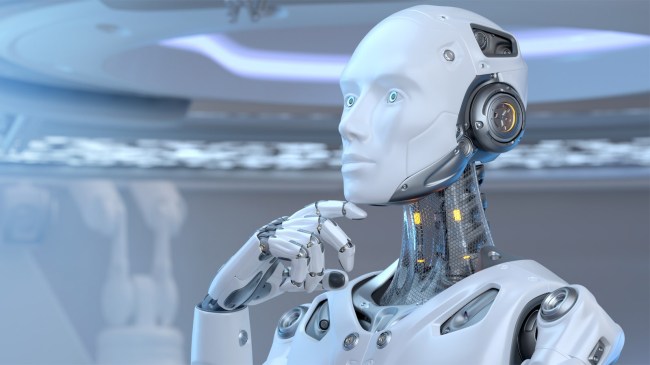iStockphoto
According to a new study, not one, but two different AI models have passed a Turing test. That means that the AI models have achieved the ability to be indistinguishable from humans.
A Turing test is a test of a machine’s ability to exhibit intelligent behavior equivalent to that of a human. The test basically involves participants speaking to a human and an AI at the same time and then having to decide which is which.
In the preprint study conducted by scientists with the Department of Cognitive Science at the University of California in San Diego, four AI systems (ELIZA, GPT-4o, LLaMa-3.1-405B, and GPT-4.5) were tested in two randomized, controlled, and pre-registered Turing tests.
“Participants had 5 minute conversations simultaneously with another human participant and one of these systems before judging which conversational partner they thought was human,” the researchers wrote. “When prompted to adopt a humanlike persona, GPT-4.5 was judged to be the human 73% of the time: significantly more often than interrogators selected the real human participant.
“LLaMa-3.1, with the same prompt, was judged to be the human 56% of the time — not significantly more or less often than the humans they were being compared to — while baseline models (ELIZA and GPT-4o) achieved win rates significantly below chance (23% and 21% respectively).
“The results constitute the first empirical evidence that any artificial system passes a standard three-party Turing test. The results have implications for debates about what kind of intelligence is exhibited by Large Language Models (LLMs), and the social and economic impacts these systems are likely to have.”
New preprint: we evaluated LLMs in a 3-party Turing test (participants speak to a human & AI simultaneously and decide which is which).
GPT-4.5 (when prompted to adopt a humanlike persona) was judged to be the human 73% of the time, suggesting it passes the Turing test (🧵) pic.twitter.com/GBEtoFJHVY
— Cameron Jones (@camrobjones) April 1, 2025
“Does this mean LLMs are intelligent? I think that’s a very complicated question that’s hard to address in a paper (or a tweet),” study author Cameron R. Jones wrote in an X (Twitter) thread. “But broadly I think this should be evaluated as one among many other pieces of evidence for the kind of intelligence LLMs display.”
“More pressingly, I think the results provide more evidence that LLMs could substitute for people in short interactions without anyone being able to tell,” he continued. “This could potentially lead to automation of jobs, improved social engineering attacks, and more general societal disruption.”
It’s not like we weren’t warned about this sort of thing happening. Many people have questioned whether we should be messing around with stuff like this in the first place.
Now it looks like we’re going to have to ramp things up and start giving humans the Voight-Kampff test to make sure they aren’t actually advanced humanoid robots.
Content shared from brobible.com.

